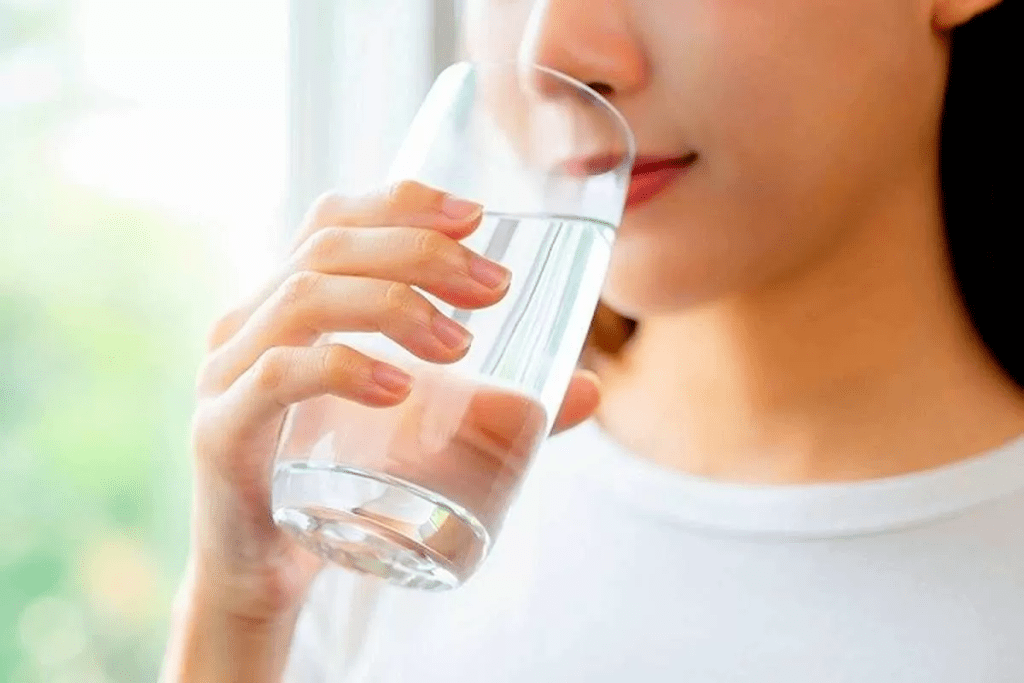Last Updated on November 25, 2025 by
Getting ready for a uroflow test can be tricky, mainly when it comes to drinking water beforehand. Proper hydration is key to getting good test results and maintaining normal urine output in one hour. It’s best to drink 3“4 eight-ounce glasses of water, which is about 24“32 ounces. Do this roughly one to one and a half hours before the test.

Drinking the right amount of water at the right time is important. It helps make sure your bladder is comfortably full. This is needed for the test to work correctly. We’ll show you why staying hydrated is important and give tips for getting ready for your uroflow test.
Uroflowmetry, or the urine flow test, is a key tool in urology. It helps check how well the bladder and sphincter work. This test is vital for diagnosing lower urinary tract symptoms.
A uroflow test measures the urine flow rate and volume. It gives important info about the urinary system’s health. This test is non-invasive and shows how fast urine flows over time.
It helps find problems like benign prostatic hyperplasia (BPH) or neurogenic bladder dysfunction.
Doctors order a uroflow test for many reasons. They check for symptoms like trouble urinating, weak urine flow, or needing to pee a lot. By looking at the urinary analysis results, they can spot issues in the lower urinary tract.
This test is great for finding problems that block urine flow or weaken the bladder muscle.
During the test, you’ll urinate into a special device. It measures the flow rate and volume. The test is done in a private area, and the device connects to a computer.
The computer records the data. This test shows how well the bladder empties. It helps find issues with urine flow. You don’t need to prepare much; just have a comfortably full bladder.

Knowing what to expect in a uroflow test can reduce anxiety. It helps patients prepare better. This way, they can give more accurate results during the test.
Drinking enough water is key to a good uroflow test. Knowing how much water to drink before the test is important.
It’s best to drink 24“32 ounces (700“950 ml) of water one to one and a half hours before. This fills your bladder just right for the test.
Bromley Healthcare advises drinking 1 liter of water before the test. Always follow your healthcare provider’s specific advice, as they might have different rules.
The aim is to have a comfortably full bladder. Drinking the right amount of water helps. But don’t drink too much to avoid health issues like water intoxication and hyponatremia.
Drink water slowly to keep your bladder full without health risks. This method is safer and more effective.

Following these guidelines can greatly improve your uroflow test results. If you’re not sure about the right amount of water, talk to your healthcare provider.
Normal urine output is key to getting accurate uroflow test results. A uroflow test checks how fast urine flows. It’s very important for spotting urinary problems. We’ll look at how urine output affects test accuracy and what factors play a role.
A minimum of 150 ml of urine is needed for a reliable uroflow test. This amount shows the patient’s usual urine flow. Experts say a full bladder is key to a good test.
Drinking enough water is key to a good uroflow test. Being well-hydrated helps show normal urine flow. Too little water can make the test results off. Too much water can make them too high.
Many things can change urine flow rates during a test. These include:
It’s important for patients to tell about their medicines and follow test prep well. This helps make sure the test results are right. The right results help doctors plan the best treatment.
“Proper preparation and understanding of the factors that influence uroflow test results are key to obtaining accurate and meaningful data.”
To get accurate results from your uroflow test, follow this preparation timeline. Proper preparation is key to a successful test and your safety.
Patients should not urinate for at least 2 hours before the test. This makes sure your bladder is full enough for accurate flow measurements. It helps your healthcare provider get a better understanding of your urinary function.
Drink the recommended amount of fluids 1-1.5 hours before the test. This is usually 24-32 ounces (700-950 ml). But always follow your healthcare provider’s specific guidelines. Monitoring fluid intake is important to stay hydrated for the test.
Tell your healthcare provider about any medications you’re taking. Some medications can change your urinary flow. Telling them helps them understand your test results better. Make a list of your medications and talk about them with your healthcare provider before the test.
By following these steps, you can make sure your uroflow test is done safely and correctly. If you have any questions or concerns about preparing for your test, ask your healthcare provider for help.
Drinking the right amount of water is key to a good uroflow test. It makes sure your bladder works right, giving accurate results.
We’ve given you tips on how much water to drink, about 24-32 ounces. This helps your bladder feel full. Not going to the bathroom for a couple of hours before the test is also important. It makes sure your test results are trustworthy.
Knowing how to stay hydrated and keep your bladder healthy is important. It helps your doctor find and treat any issues with your urine flow.
A uroflow test checks how well your bladder works. Doctors use it to find problems like BPH or neurogenic bladder. It’s a simple, non-invasive test.
Drink 24-32 ounces (700-950 ml) of water before the test. Some say drink 1 liter. You want to be comfortably full for the best results.
A normal urine output in an hour varies. But aim for 125-150 ml for the best test results.
Drinking the right amount of water is key to good test results. It helps you have a full bladder, which is important for the test.
Too much water can cause water intoxication and hyponatremia. Stick to the recommended water intake to avoid these problems.
To get ready, don’t pee for 2 hours before. Drink the right amount of water 1-1.5 hours before. Tell your doctor about any medicines you’re taking.
Things like age, sex, and health conditions can affect urine output. Talk to your doctor about any concerns to get the best results.
A urinary analysis checks your urine’s physical and chemical properties. It’s different from a uroflow test but both help understand bladder function and urinary health.
Watch how much and how often you pee. If you’re worried, talk to your doctor for advice.
A weak urine stream might mean a bladder problem or blockage. If you notice this, see your doctor to find out why and how to fix it.
Subscribe to our e-newsletter to stay informed about the latest innovations in the world of health and exclusive offers!